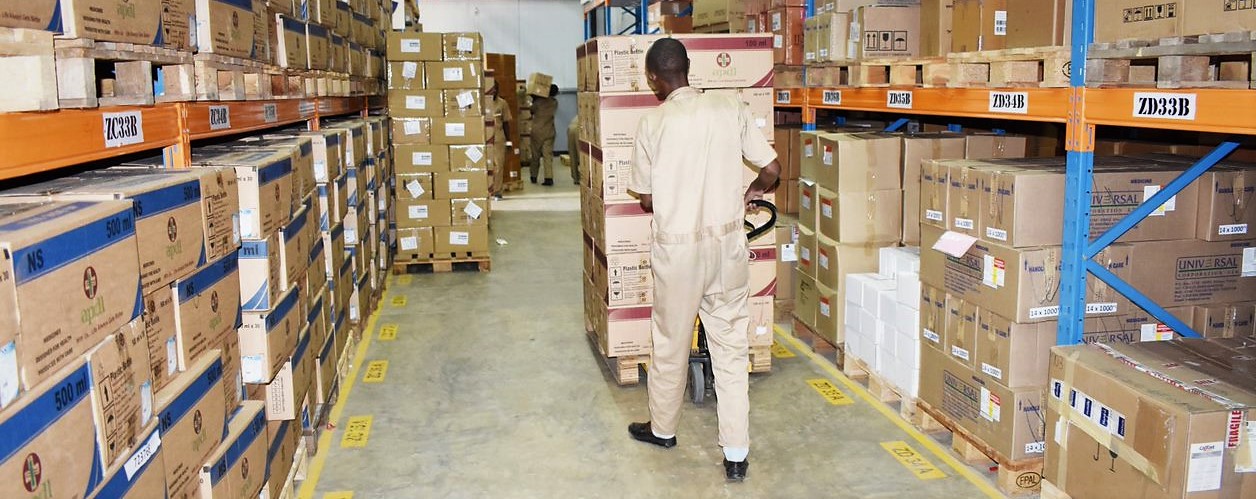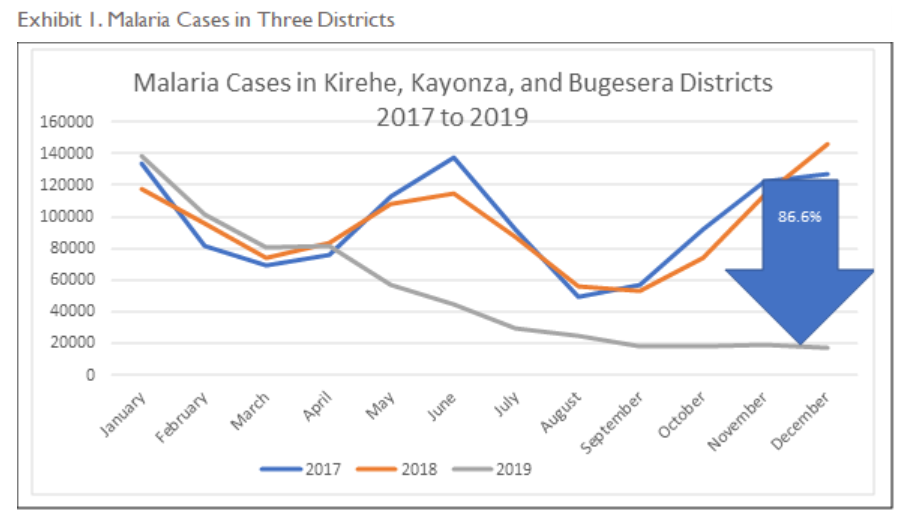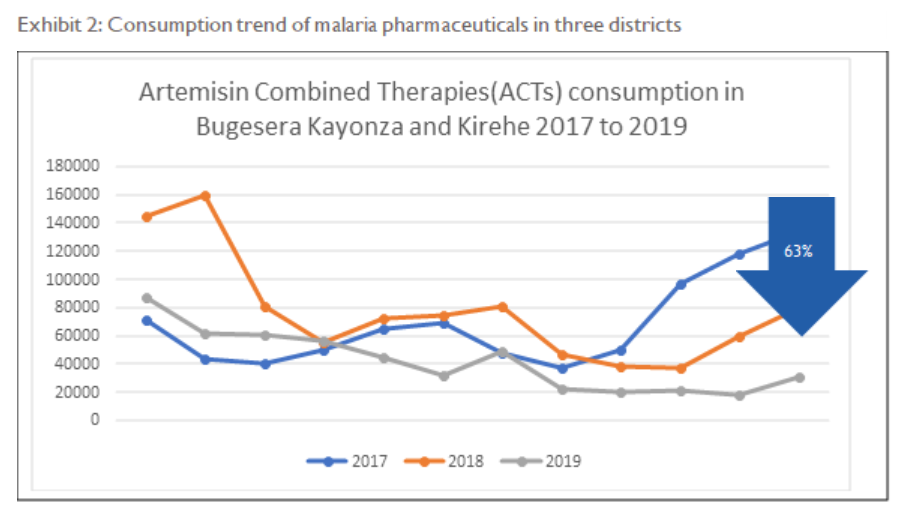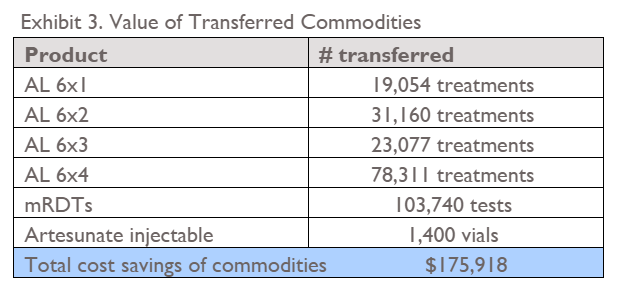The MOPDD, with the support of the USAID Global Health Supply Chain Program-Procurement and Supply Management (GHSC-PSM) project on behalf of PMI, quantifies malaria commodity needs based on reported consumption rates and yearly malaria cases. These data guide procurement and distribution decisions. GHSC-PSM assists the MOPDD with analyzing monthly commodity data from the Central Medical Store, district pharmacies, and health facilities (including health centers, and district, provincial and referral hospitals). MOPDD analyzes stock-on-hand against projected consumption—accounting for low and high malaria seasons—to determine the months of stock available at all levels. If stocks are above the maximum level and there are commodities that are at risk of expiry, this stock must be quickly re-allocated to facilities that are understocked so that the supplies are used while they are still valid.

Malaria continues to present public health challenges in Rwanda, despite evident progress and ongoing efforts to reduce the impact of the disease. The Government of Rwanda, through the Malaria, Neglected Tropical Diseases and Other Parasitic Diseases Division (MOPDD) has implemented numerous prevention initiatives for malaria control.
These activities include distribution of long-lasting insecticide-treated nets (LLINs) for mass campaigns and routine distribution to pregnant mothers and children under one year old, and indoor residual spraying (IRS) with support from the U.S. President’s Malaria Initiative (PMI) and the Global Fund to Fight AIDS, Tuberculosis and Malaria.
In 2019, several regions in Rwanda saw a drop in malaria cases thanks to successful prevention efforts. While this was great news, it also meant that health facilities could be left with a surplus of diagnostic and treatment supplies. If these supplies went unused, they could expire and be discarded, even though other health facilities faced supply shortages. To prevent wastage of these commodities, Rwandan government supply chain managers and implementing partners knew they must act quickly.


In November 2019, the project’s routine monthly stock monitoring showed overstocked malaria medicines and rapid diagnostic tests (mRDTs) with a high risk of expiry in three districts in Eastern Province: Kirehe, Kayonza, and Bugesera. Review of data showed that the excess was due to lower consumption rates at district pharmacies, hospitals, and health centers. These rates were verified against data from the Rwanda Integrated Health Management Information System (HMIS), which confirmed that malaria cases had indeed gone down in the three districts. (See Exhibits 1 and 2.)
To minimize the risk of expiries in Kirehe, Kayonza, and Bugesera, the MOPDD adopted a two-pronged approach. First, the MOPDD re-allocated commodities to districts with the highest number of malaria cases. With the MOPPD’s approval, private local logistics companies moved the commodities from low-burden sites to high-burden sites to prevent expiry and financial loss, while ensuring diagnostics and treatment were available in the right places. The Malaria Quantification Sub-Committee took the second step of revising the consumption forecast for fiscal year 2020-2021 and planned future shipments based on the adjustments.
The redistribution of commodities enabled GHSC-PSM and the MOPDD to prevent the loss of over US$175,000 of commodities (See Exhibit 3).

Close monitoring of the supply chain is key to ensuring that antimalarial medicines and tests do not expire in the areas where cases decrease and the commodities are not used, but rather are redistributed to areas that need them. With support from PMI and GHSC-PSM, Rwanda successfully averted the loss of commodities in 2019 and continues to strengthen logistics strategies to continue proper management of the malaria supply chain.